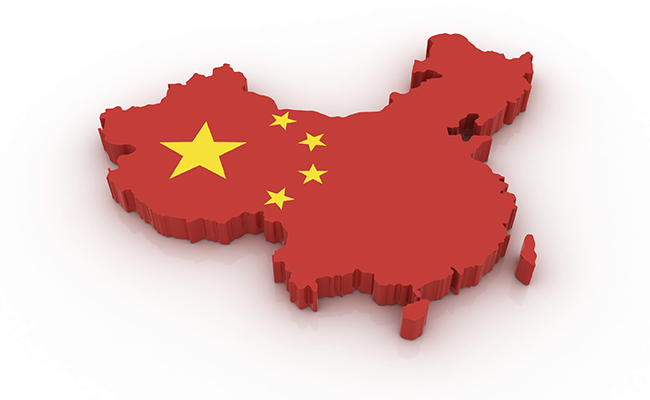This week, China industrial production figures revealed a slower growth from last year; Lenovo and Tencent reported profits while sportswear manufacturer Li-Ning suffered yet another battering; and Alibaba restructured its relationship with Alipay.
The Macro Picture
China’s GDP growth bounced back to the target rate of 7.5% in the second quarter, but newly released data this week shows that Beijing may need to inject a stimulus to the economy to meet the goal for the full year.
China’s industrial output rose 9% in July from a year earlier, lower than the 9.2% rise recorded in June. Fixed-asset investment increased by 17% in the January-to-July period, a slight dip from the 17.3% increase logged in the first half of the year. Retail is not as robust as expected—sales grew 12.2% year-on-year in July, slower than June’s 12.4%.
What’s probably more surprising is a sharp decline in financing last month. Banks lent $62.1 billion in new loans in July, a far cry from June’s $174.2 billion, according to the People’s Bank of China. The amount of total social financing, which is an indicator of the capital an economy receives in a given period of time, declined to $44.3 billion in July from June’s $317.7 billion. Economists only predicted a much more moderate decrease to about $241.9 billion. China’s sluggish real estate market contributed to the falling credit market, as new construction declined 12.8% in the first seventh months of the year.
But analysts say that people should not hit the panic button yet, as many of them believe that last month’s credit squeeze is likely a one-time incident. On the other hand, China’s exports remain strong, logging the biggest monthly trade surplus in July.
Strong demand overseas pushed exports to climb 14.5% last month from a year earlier, twice as fast as June’s 7.2% increase. Meanwhile, imports contracted slightly by 1.6%, giving the country a $47.3 billion surplus, a new monthly record for the world’s largest goods trader.
Companies’ Earnings
Asia’s largest tech firm Tencent led a number of Chinese companies that posted earnings this week.
Tencent, the owner of WeChat, a multi-use messaging app with more than 500 million users, saw a 37% growth of gross income in the second quarter that ended on June 30th. Non-GAAP operation profit advanced 19% compared with the previous quarter, a 58% surge if compared year-on-year.
Behind the very healthy growth, however, the Hong Kong-listed company is seeing a slowdown of its revenue from online games, which account for the bulk of its income. Online gaming revenue rose 7% from last quarter to about $1.8 billion, slower than the 23% quarterly jump recorded in the first three months of the year. But thanks to the World Cup and the partnership with China’s second-largest e-commerce website JD.com, income from advertisements picked up the slack and advanced by 75% from the previous quarter. The company’s share price has risen 30% since the beginning of 2014.
Lenovo is doing pretty great as well, and by the words of its Chairman and CEO Yang Yuanqing, the company is ready to further “attack” product categories from PCs to smartphones. On Wednesday, the world’s largest PC maker reported a 23% increase in net profit to $213.5 million from a year earlier, which easily beat analysts’ estimate of $197.3 million compiled by Bloomberg.
While the company continues to dominate the global PC market by reaching a new high of 19.6% of market share, Lenovo is actually selling more smartphones for the first time. During the three-month period that ended in June, the firm sold 15.8 million smartphones around the world—becoming the fourth-largest supplier of handsets globally. On the tablet front, Lenovo ranked the third, having sold 2.3 million devices in the quarter.
Having not only survived, but also prospered in the post-PC era, “our business results have never been so balanced”, said Yang, whose company operates in more than 160 countries across the globe. The mainland China market only accounted for 36% of its revenues in the quarter.
Sina, the operator of China’s Twitter-equivalent Weibo, is finally reporting profits—the company was losing money in previous quarters. For the second quarter, the Beijing-based web portal posted a profit of $16.6 million, reversing a $33.2 million loss in the first quarter. Weibo, which was spun off from Sina and went public in the US in April, recorded an operation loss of $10.5 million.
But the market is becoming tougher and tougher for Li-Ning, China’s second-largest sportswear brand. During the first half of 2014, the Beijing-based company lost more than $94.5 million, 218.5% worse than a year earlier. The company’s share is now traded at about HK $4.7, compared to a peak of HK $7.6 recorded last October. Li-Ning is arguably the most recognized brand in China after foreign competitors Nike and Adidas, but that recognition alone is not enough to turn the ship around, as Chinese consumers are becoming more affluent and willing to pay for more premium brands. The company said the loss is primarily due to investment into marketing and advertising, which will likely continue in the following quarters. (To read about the genesis of Li-Ning’s problems, click here.)
And finally, Alibaba
The world has set its eyes on Alibaba ever since the company started planning for its IPO, which could be one of biggest in US history. According to the latest media accounts, Alibaba has finally set the date on September 16; and Jack Ma, founder and Chairman of the company, will have to spend his 50th birthday on the road, marketing shares of his lucrative business to investors across the globe.
For those soon-to-be Alibaba investors, there’s more good news this week. According to a new SEC filing, the e-commerce giant has adjusted its relationship with Alipay, China’s Paypal counterpart, which was separated from the mother group and was secretly put in the hands of Ma and a group of his partners. Alibaba investors Softbank and Yahoo were furious—and in 2011, the parties reached an agreement that if Alipay were to IPO someday, Alibaba will receive a payment worth 37.5% of its market value; and the sum must be between a range of $2 billion and $6 billion. Now under the new agreement, the range is gone, and some analysts believe that Alibaba could gain more than $9.3 billion if Alipay goes public.
Alibaba will also sell all its small business lending operations to an associated group called Small and Micro Financial Services Company (SMFSC) for $518 million. Analysts believe that this move will reduce risks for Alibaba, as SMFSC is not part of the company’s IPO.

















